During his time at the Leipzig Conservatory, Edvard Grieg (1843-1907) heard Clara Schumann perform her husband’s Piano Concerto. As he later recalled, the work continued to signify a deeply musical experience lasting for decades. “Inspired from beginning to end,” he writes, “it stands unparalleled in music literature and astonishes us as much by its originality as by its noble disdaining of an extravert virtuoso style. It is beloved by all, played by many, played well by few, and comprehended in accordance with its basic ideas by still fewer, indeed, perhaps by just one person; his wife.”
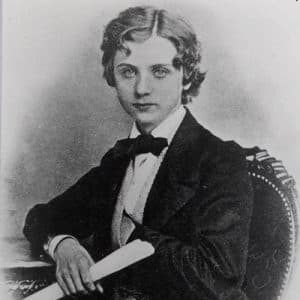
Edvard Grieg in Leipzig, 1862
Once Grieg had graduated from the Leipzig Conservatory, he set up shop in Bergen and his infatuation with the Schumann concerto spawned his personal journey into the realm of the piano concerto. Grieg composed his Piano Concerto Op. 16 in Sölleröd, Denmark, where he sought the advice of the Danish composer and pianist Edmund Neupert.
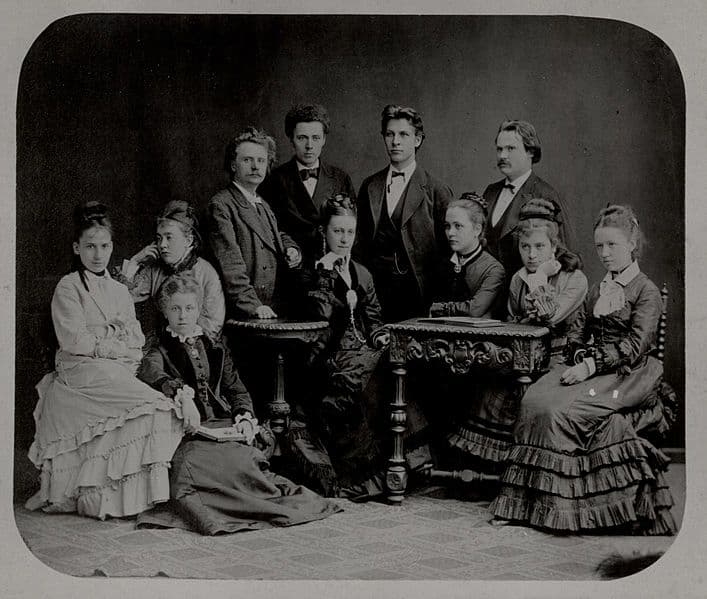
Edvard Grieg with friends in Leipzig
The work first sounded in public on 3 April 1869 in Copenhagen, with Holger Simon Paulli conducting and Edmund Neupert as the soloist. Anton Rubinstein, who was on tour in Denmark, had lent his personal grand piano for the occasion, and we know that the Queen of Denmark was in the audience.
Edvard Grieg: Piano Concerto in A minor, Op. 16, “Allegro molto moderato”
Not only was each movement enthusiastically applauded but applause broke out even after the first movement cadenza! Critics called it “new, original, and inspired.” One critic viewed the work, which incorporated Norwegian folk idioms, as presenting “all Norway in its infinite variety and unity,” and compared the second movement to “a lonely mountain-girt lake that lies dreaming of infinity.”
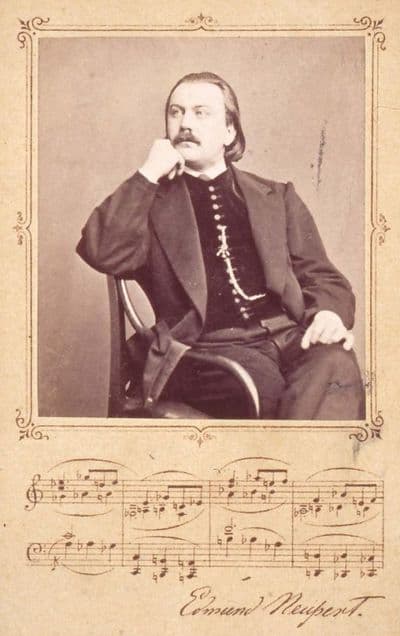
Edmund Neupert
However, audience members also quickly remarked on how very much the work reminds them of Schumann’s Piano Concerto. The similarities are of course compelling. Both works are scored in the key of A minor, and both works represent the composer’s only full-fledged entry in the genre. Both works begin with an orchestral punctuation and a great flourish from the piano. Yet, as has been written, “Grieg’s concerto is not a mere parody of Schumann’s. Without trying to hide his admiration of his model, Grieg produced a work of considerable originality that displays the uniqueness of his own voice, nowhere more than in the folk-inflected finale, the details of which were particularly admired by Liszt and Tchaikovsky.” With Grieg’s vast lyrical gifts obvious in all themes throughout the work, it became, according to critics “one of the freshest-sounding and most popular heroic piano concertos of the Romantic Era.”
Edvard Grieg: Piano Concerto in A minor, Op. 16, “Adagio”
However, the version that Danish and Norwegian audiences initially heard was rather different from the one familiar to us today. Two publishers turned it down, and it took persistent lobbying for the publisher Fritsch to take it on board three years after the premiere performance. Grieg had shown his concerto to Franz Liszt in Rome in early 1870, and when Liszt played through the work he often shouted his approval.
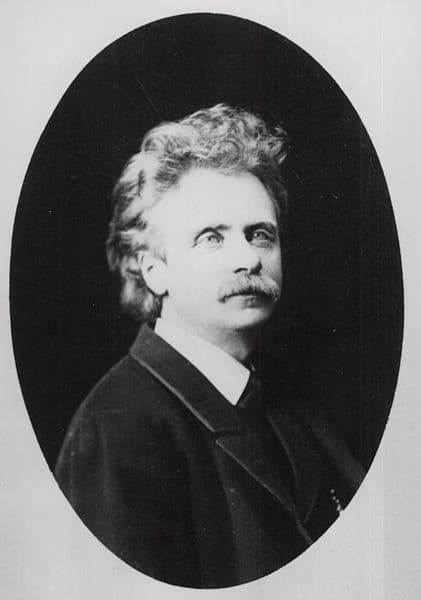
Edvard Grieg in 1870
As Grieg related, “Finally, Liszt said in a strange, emotional way: ‘Keep on, I tell you. You have what is needed, and don’t let them frighten you.’” After meeting Liszt, Grieg continued to make changes, assigning the second subject to a solo trumpet and not the cellos. Grieg was never totally satisfied with the Concerto, and he continued to revise both the solo and orchestral parts. In fact, Grieg made final revisions as late as 1906/07, the final year of his life.
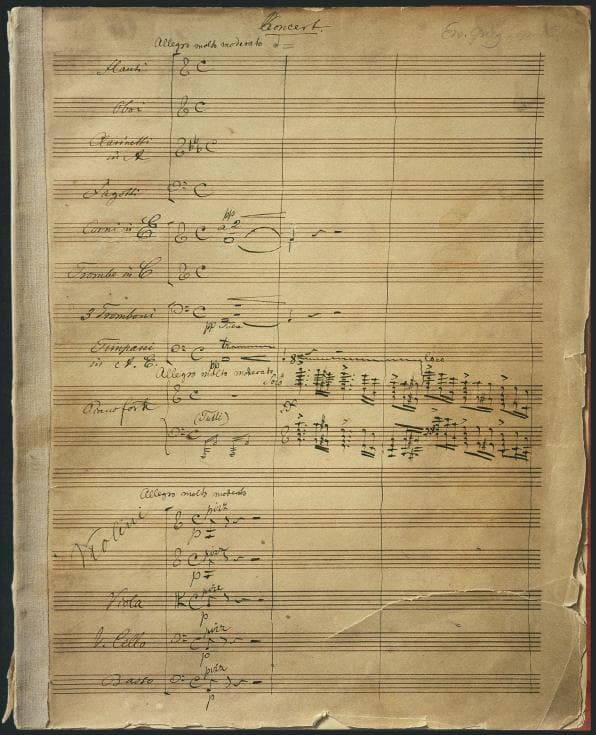
Grieg’s Piano Concerto autograph manuscript
As a publisher writes, “the celebrated Grieg Piano Concerto turns out to be an editor’s nightmare. Even during the composer’s lifetime, the work was so famous that it had to be reprinted over and over again, each time with revisions from the composer.” Grieg was only 25 at the time of composition, yet the concert “exhibits a degree of maturity in his handling of the concerto form that few have equaled.” Predictably, the work had some distractors, with George Bernard Shaw referring to Grieg and his concerto as “a pink bon-bon wrapped in snow.”
For more of the best in classical music, sign up to our E-Newsletter
Edvard Grieg: Piano Concerto in A minor, Op. 16, “Allegro moderato”

Listen to Alexander Malofeev’s stunning rendition of this amazing concerto performed when he was just 17. Alexander Sladkovsky was the conductor.It’s just perfect in every way!
I echo that very sentiment….even the audience in that performance gave him a rousing applause after the first movement…with an approval by the conductor….with his welcoming it!